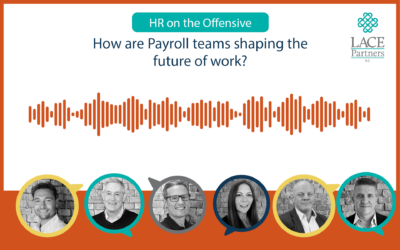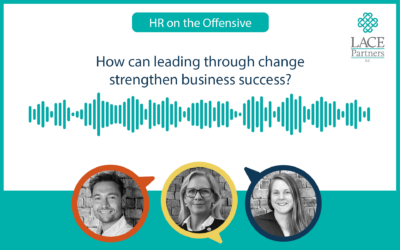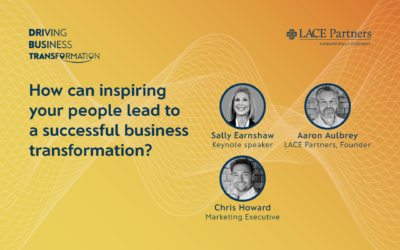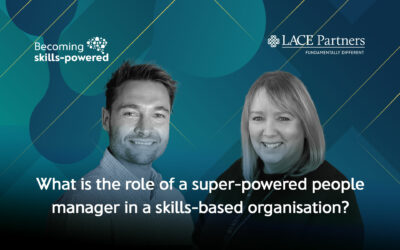This blog includes one of the the topics discussed in our recent One Big Thing research. Click here to learn more.
What is neurodiversity and why aren’t employers tapping into this important talent pool? Especially at a time of critical talent shortages? What are some of the strengths and challenges that exist within a neurodiverse workforce? IN a recent HR on the Offensive podcast earlier in the year we explored this with Mel Francis, a neurodiversity speaker and champion. Today we’ve taken a summary of some of the key questions that were talked about.
What is neurodiversity?
This term was coined by a sociologist called Judy Singer back in the 1980’s. It’s an umbrella term for all the neurodiverse conditions, including:
Dyslexia -this is a condition that can cause issues with reading, writing and spelling.
Dysgraphia – a condition that can cause issues with the set of skills relating to transcription.
Dyscalculia – a condition that can affect your ability to acquire maths skills.
Dyspraxia – a condition that can affect your fine and/or gross motor co-ordination.
Autistic spectrum disorder – is the way we think about and experience the world around us. It’s a spectrum because of what extent individuals have strengths and disadvantages vary.
Is there more businesses can do to embrace neurodiverse individuals?
There is more that all of us can do. Firstly, we must have an increased awareness of the complexities and the richness of neurodiversity. There is such a rich talent pool that we’re not aware of and because of that we’re not doing enough to attract, recruit and retain that talent.
Why do you think 50% of employers will not hire someone who is neurodiverse?
I think the answer is because, like I mentioned earlier, a lack of awareness of the brilliance of neurodiverse talent. There’s a lot of assumptions about what those conditions are and what the traits are. It’s also important to note that the conditions aren’t mutually exclusive, meaning an individual may have traits from multiple conditions. Unfortunately, we are missing the skills, knowledge, creativity and innovation that exists in the neurodiverse talent pool. If we start by increasing our awareness of neurodiversity it will then help increase our appreciation for neurodiversity.
What are the strengths that can come with recruiting neurodiverse talent?
We are made aware of a neurodiverse individual’s particular strengths and areas of struggle. Some of the areas of strength that are prevalent among neurodiverse talent, most broadly, include; creativity, innovation, lateral thinking, the ability to analyse strategically, strong reasoning and problem-solving capabilities. Some of the struggles might be concentration, focus, fatigue and difficulties with organising and planning. With some of the conditions the traits may cause them to have a poor sense of direction or struggles with reading, writing and spelling. It’s crucial to talk with neurodiverse individuals in order to know their particular strengths and struggles.
What are some examples of organisations handling this well?
The organisations that are doing this well are the ones that take the time to understand what neurodiversity is and what tools and techniques that can enable them to thrive within the organisation. But before that can be possible, they must also have a recruitment process that allows them to demonstrate their ability for any particular role.
Do you think that the new flexible workplace will have a positive impact on neurodiverse talent attaining the jobs they desire?
I hope that’s the case across the board neurodiverse or not. That said, I think that there are a lot of opportunities emerging for neurodiverse talent. The one thing I’ve noticed during the pandemic with individuals who are neurodiverse is that a portion of them can struggle with transition. In many cases organisations are telling their employees to come back to the office and some are struggling with that transition back. The bottom line is that organisations must be aware to not lose their neurodivergent talent because of this oversight.
How can HR support their line managers in enabling neurodivergent talent?
A common theme that I can’t stress enough is to raise awareness, that’s always the first step. If you can normalise the language and give everybody a shared understanding of neurodiversity people will be more likely to share their own experiences with it. The next step is then to provide tailored support to the line managers so that they can be more confident when entering those conversations.
Do you think the neurodiverse discount themselves from jobs?
It’s starts with organisations, they need to apply a neurodiverse lens across their policies, procedures and ways of operating. Next, they should check their job descriptions to see if they are fit for purpose and re-think some of the criteria for the role. A great way of indicating you’re a welcoming organisation is signposting that you are neuroinclusive or on your way there.
Do you think businesses are viewing neurodiverse talent to fix the current talent shortages?
This is definitely an opportunity as, for example, only 22% of adults with autism are in any form of employment. This means that the rest are a huge pool that businesses are not tapping into. A couple of companies that are taking advantage include EY who have a neurodiversity centre, and Microsoft carry out a recruitment campaign specifically for neurodiverse talent. However, despite the opportunity and the state of the talent market I don’t think the wider business community are fully utilising the talent yet.
If you would like advice on how you can review policies, policies and EX strategies to better attract and retain neurodiverse talent, please get in touch using the form below:






